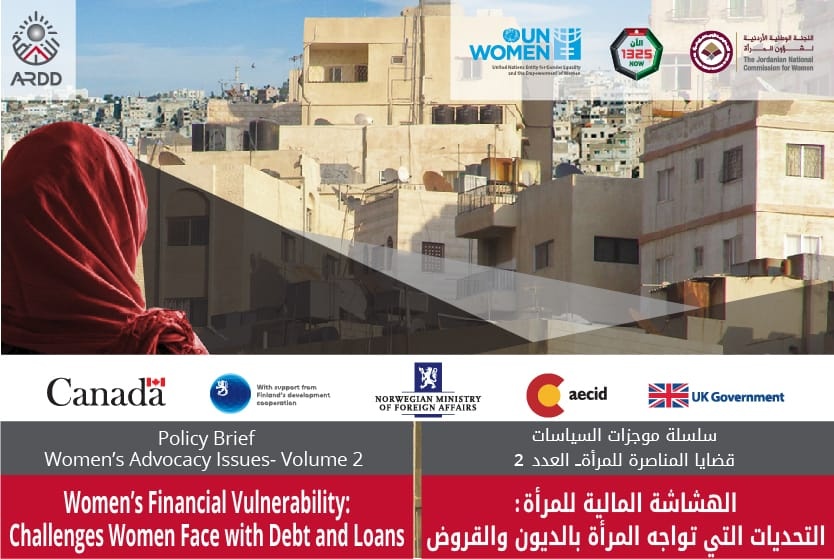In August 2020, ARDD collected data from 506 women in Jordan to gauge their financial situation, particularly the impact COVID-19 has had on their financial debt. The analysis of the data, combined with information and insight from the 19 CBOs participating in this project, resulted in very informative findings regarding women’s debt. Overall, COVID-19 has exposed the fragile financial situation of women. When looking at different aspects of women’s lives (their legal status, educational level, and civil/marital status), data shows that these elements are all critical to understanding the type of debt and the vulnerability of their situations. Along with it, the prevalence of non-institutional actors providing financial assistance to Syrian refugee women raises concern about the potential risk of abuse.
The brief also suggests several recommendations to the Jordanian government and donors, such as providing support to programs that improve women’s skills and raise their legal and financial awareness, strengthening cash assistance programs, and drafting protocols to report situations of abuse regarding borrowing from non-institutional sources, in addition to enhancing legal aid services for women and supporting them.
The Arab Renaissance for Democracy Development (ARDD) is producing a series of policy briefs within the framework of the project “Strengthening the Capacities of Women-led CSOs in Evidence-Based Advocacy and Women, Peace, and Security (WPS) Agenda” supported by UN Women with the generous funding of the governments of Canada, Finland, Norway, Spain, and the United Kingdom. ARDD acknowledges the support of the women-led civil society partners involved in the project implementation and thanks to the representatives of the organizations for their meaningful contribution.


